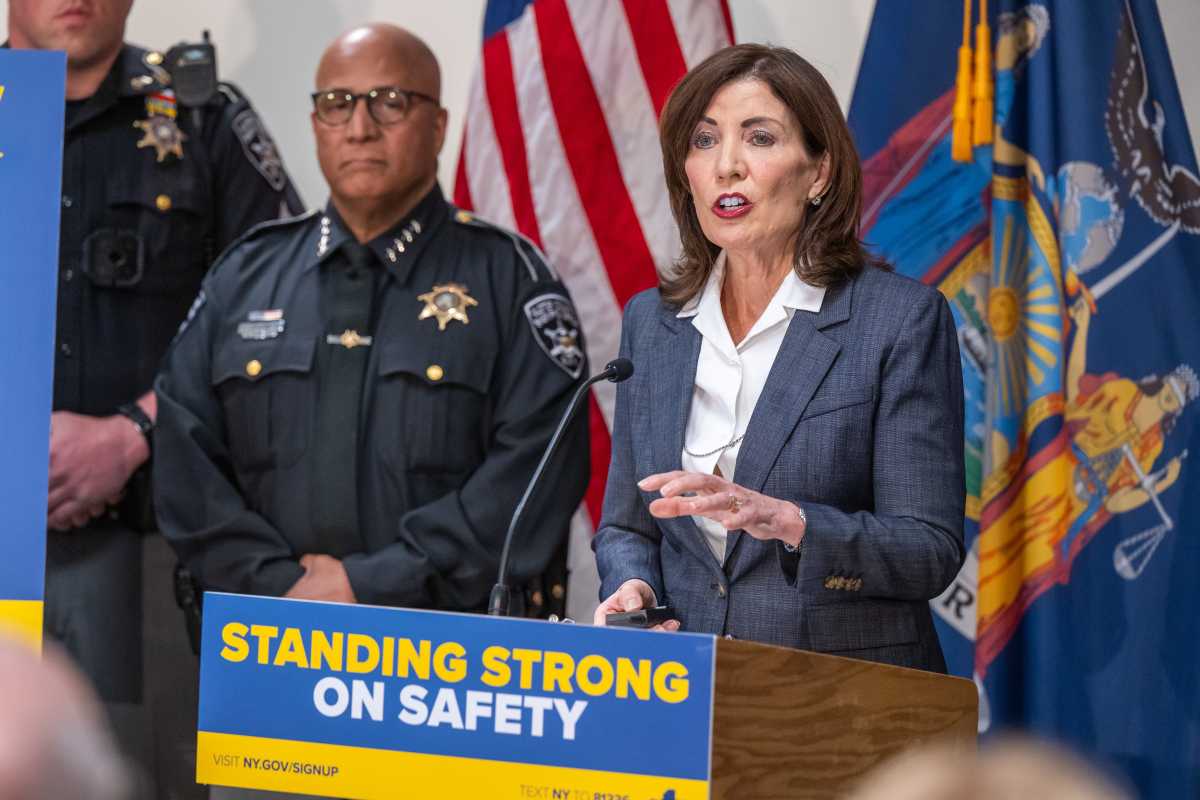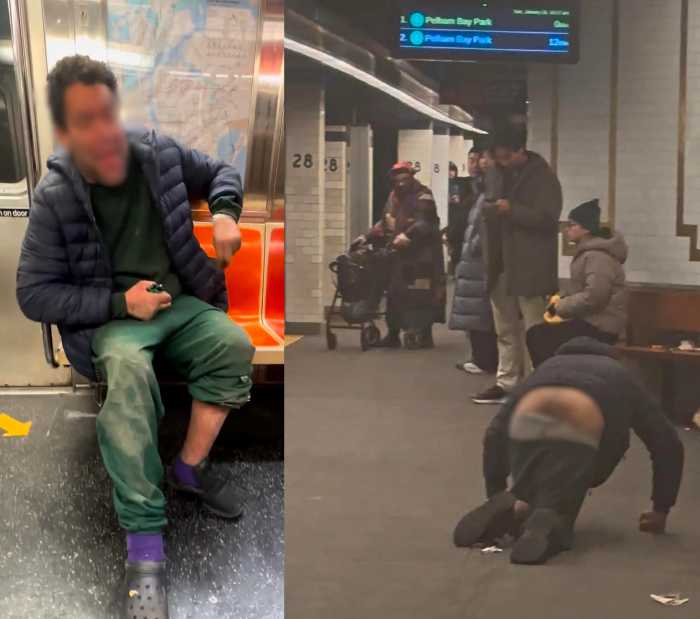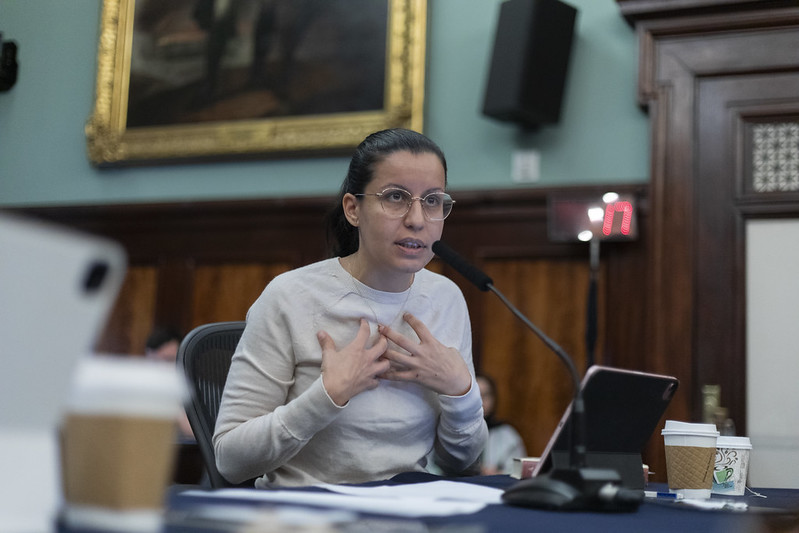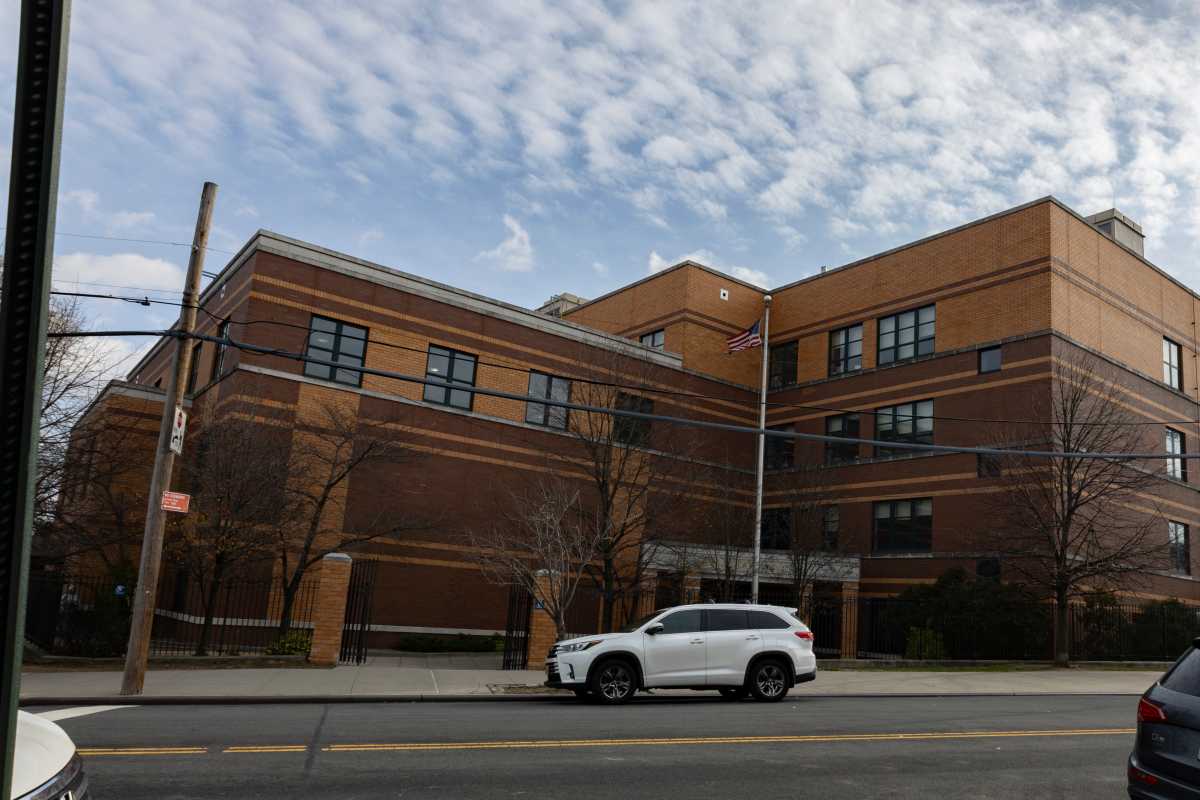Four months since Gov. Kathy Hochul proposed reforms to expand the state’s laws providing treatment options and support for those living with serious mental illnesses, the calls for doing so grew louder in the days following two attacks last week done by someone having a mental illness crisis.
On April 6, a Brooklyn man attacked four young girls with a cleaver and a knife before being shot and injured by police. Just two days later in Soho, a man with a history of mental illness stabbed a woman with a shard of glass in an unprovoked attack.
Those incidents, along with others such as the Bronx murder of a 14-year-old boy back in January by someone with severe mental illness, have raised further debate over Hochul’s proposal to tighten the involuntary commitment laws and Kendra’s Law, which she says is essential not only to boosting public safety but also getting essential treatment and help to those in need of it.
One supporter is Assemblyman William Colton (D-Brooklyn). In a statement following the attacks in Bensonhurst, he expressed his support for strengthening the laws because he felt such policies would have prevented the incident from ever happening.
“First, we must be careful how we identify what ‘not being able to care for themselves’ means,” Colton said. “In addition, we must precisely define procedures for release and make sure we include sufficient resources in the budget. There must be treatment protocols and facilities available so that people who have been confined are not simply released back onto the streets, as is often the case now.”
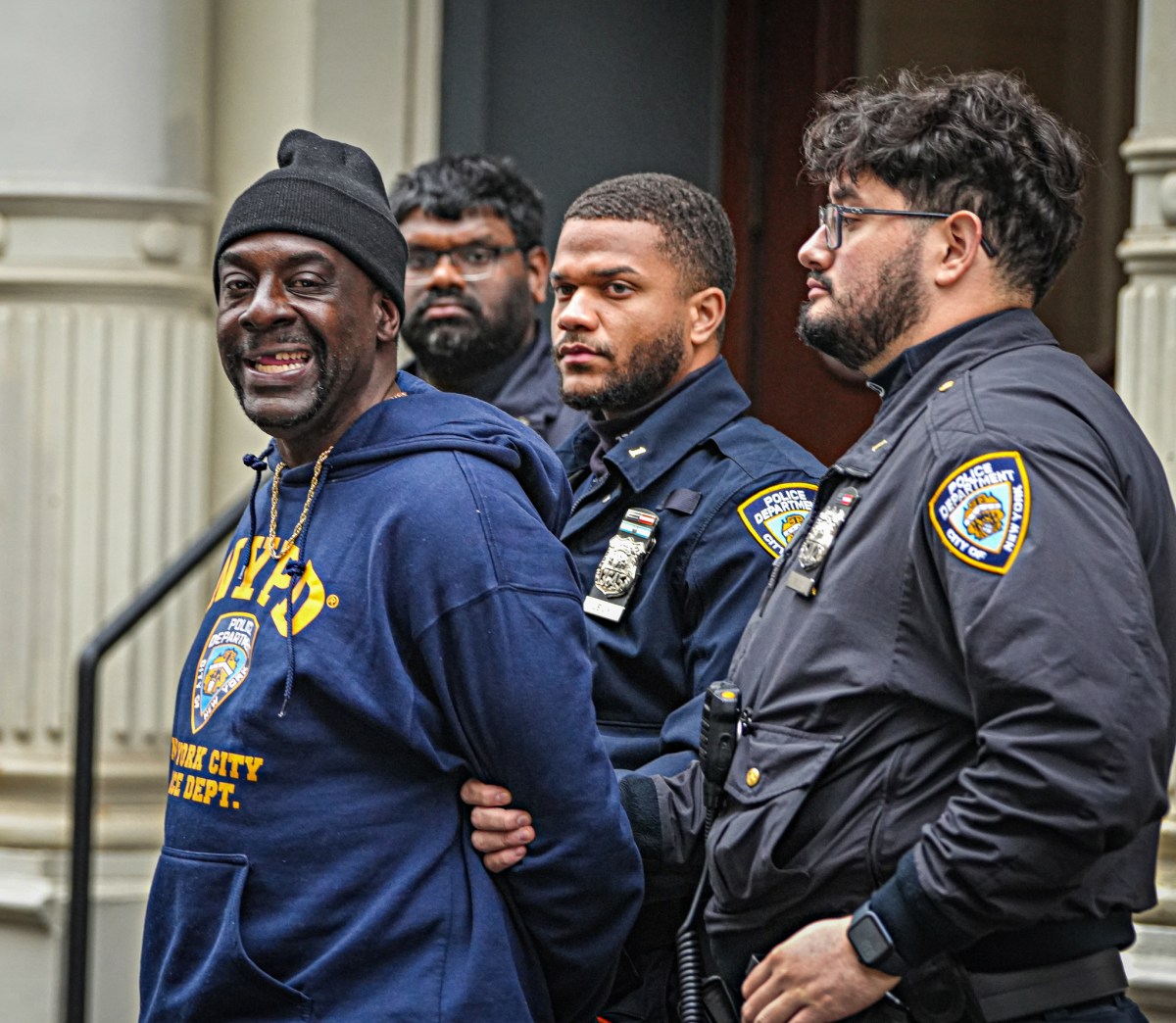
Many advocates who spoke with amNewYork for this story said they are against short-term treatment. Jonathan Chung, the Director of Public Policy and Advocacy at the New York chapter of the National Alliance for the Mentally Ill (NAMI), argued the current laws are not long-term solutions.
“These are not long-term plans,” Chung said. “These are layers of issues, and they don’t get to the root of the issues.”
Assembly Member Sam Pirozzolo (R-Staten Island) had proposed a bill that would place repeat offenders of violent attacks into rehabilitation centers, which he says was in response to the involuntary commitment laws that only give short-term treatment rather than long-term.
“It’s kind of ridiculous,” Pirozzolo says. “They’re brought in and released to commit the same crime. It’s just a Band-Aid.”
Currently, the involuntary commitment laws allow hospitals to hold anyone who poses a threat to themselves or others for up to 60 days. It also permits the police and outreach teams to commit someone involuntarily to a hospital. The Governor wants to expand the definition of harm to her proposal.
Kendra’s Law, which was named after a woman who was pushed in front of a subway in 1999, provides a framework for court-ordered Assisted Outpatient Treatment (AOT) for those needing mental illness treatment and hospitalizations. Hochul says she wants to see improvements in which courts can order outpatient treatments and make voluntary check-ins easier for those in need of help.
Finding another way
While some in NYC support these proposals, there are some who want to see the Supportive Interventions Act finally be passed.
Introduced in 2023, the bill offers a chance to redefine involuntary hospitalization by including the inability to care for their basic needs, aside from being a threat to others. During a press briefing last November, Brian Stettin, senior advisor on mental illness to Mayor Eric Adams, explained that the current law is too vague when it comes to how someone is a danger to themselves or others.
“Danger to self has to mean more than just they’re suicidal, or they’re engaging in some outrageously dangerous conduct or at some risk of imminent physical harm,” Stettin said. “It also has to consider the person who’s a danger to themselves in that they can’t meet their basic human needs of food, clothing, shelter, medical care, and they are slowly wasting away. It’s that kind of slow-motion self-destruction that we all see so often on the streets and subways.”
Responding to Hochul’s announcement in January, Mayor Adams said in a statement, “Denying a person life-saving psychiatric care because their mental illness prevents them from recognizing their desperate need for it is an unacceptable abdication of our moral responsibility. That is why, two years ago, our administration announced an ambitious plan to support New Yorkers living with untreated severe mental illness and experiencing homelessness, which included a new city protocol on involuntary removals and a package of proposed state legal reforms to maximize our ability to serve this population. The Supportive Interventions Act would ensure that those struggling with severe mental illness receive the help they need, instead of the current and unacceptable status quo of waiting for something tragic to happen.”
Brooklyn Assembly Member Jo Ann Simon (D-Brooklyn) believes a law like the Supportive Interventions Act is not needed because it has not worked.
“It’s too short-sighted,” Simon said. “It’s not an answer. It may be part of an answer for some people, but what happens when one is involuntarily hospitalized? You’re in a psych ward, not exactly a pleasant place to be. But the kind of treatment you get is very basic, stabilizing, and then you’re released. It’s not going to give you life skills. So I think we’re trying to squeeze around a square peg in a round hole a bit here.
Chung says he does not support the act or the idea of strengthening the involuntary commitment laws.
“The state already has involuntary commitment powers,” he says. “These calls to strengthen the laws are really diverting what is really needed, and that hasn’t been funded enough. It’s all smoke and mirrors.”
Breaking the ‘cycle of relapse’
Harvey Rosenthal, the CEO of the Alliance of Rights and Recovery, would also like to see more funding and training so therapists and clinicians can keep an eye on anyone who leaves a hospital or treatment center prematurely. This way, they will not give up on the person with a mental illness and gain their trust and return to treatment.
“That will break the cycle of relapse,” he stated. “Hospitals are overleveraged. It’s not right, and there’s not enough in the budget.”
Pirozzolo says the act is a good starting point, but it needs more effort to reach its goals.
“Who is qualified to make determinations of what is a severe mental illness or what it isn’t?” he says. “While we can assume a person hired to handle this responsibility would be knowledgeable in the mental health field, are they knowledgeable of the deep nuances that make up our diverse neighborhoods? At what part of the process does the individual or team get involved in the legal process?”
One issue that needs to be approached is the cultural and language barriers that can prevent many New Yorkers from seeking treatment.
Following the attack in Bensonhurst, both Assembly Member Lester Chang and City Council Member Susan Zhuang pointed out that residents of that Chinese-American community do not seek mental health treatment because of those two obstacles. Those amNY spoke to agreed these barriers need to be addressed.
“There is a lack of cultural competency and understanding so you can get a proper diagnosis,” Chung said. “Not all understand you can go out and seek help. That’s why NAMI wants to build community with education courses.”
Assemblymembers Pirozzolo and Simon both agree language and cultural barriers pose an issue for a very diverse city. Simon would like to see more clinicians from diverse backgrounds, and Pirozzolo believes social workers or other professionals meant to address health issues are from or intimately familiar with the communities in which they will be serving.
The final issue that the call to tighten the involuntary commitment laws is the stigma surrounding mental illness. Rosenthal wants to make it clear that those with mental illness only commit 4% of violent attacks and are usually victims of violence of themselves.
“It’s relatively rare,” he said, “but it gets a lot of attention when it happens. The reaction is always the same. Same old terrible playbook. It causes people not to get help because it vilifies mental illness.”
Simon shares that sentiment: “It’s not about strengthening the mental health laws because it’s not a crime; having a mental illness is not a crime. The real issue is what is it that’s being proposed and is it the kind of thing that would work?”
In a statement to amNewYork, a spokesperson for Hochul said, “Providing care to people facing significant health risks due to mental illness is a compassionate and humane approach that all New Yorkers can recognize. That is why there is overwhelming public support for Governor Hochul’s proposal. We will continue to work with the Legislature to ensure we can enact these statutory changes and align New York with 43 other states that already have this in their laws. The cost of inaction is far too high.”



